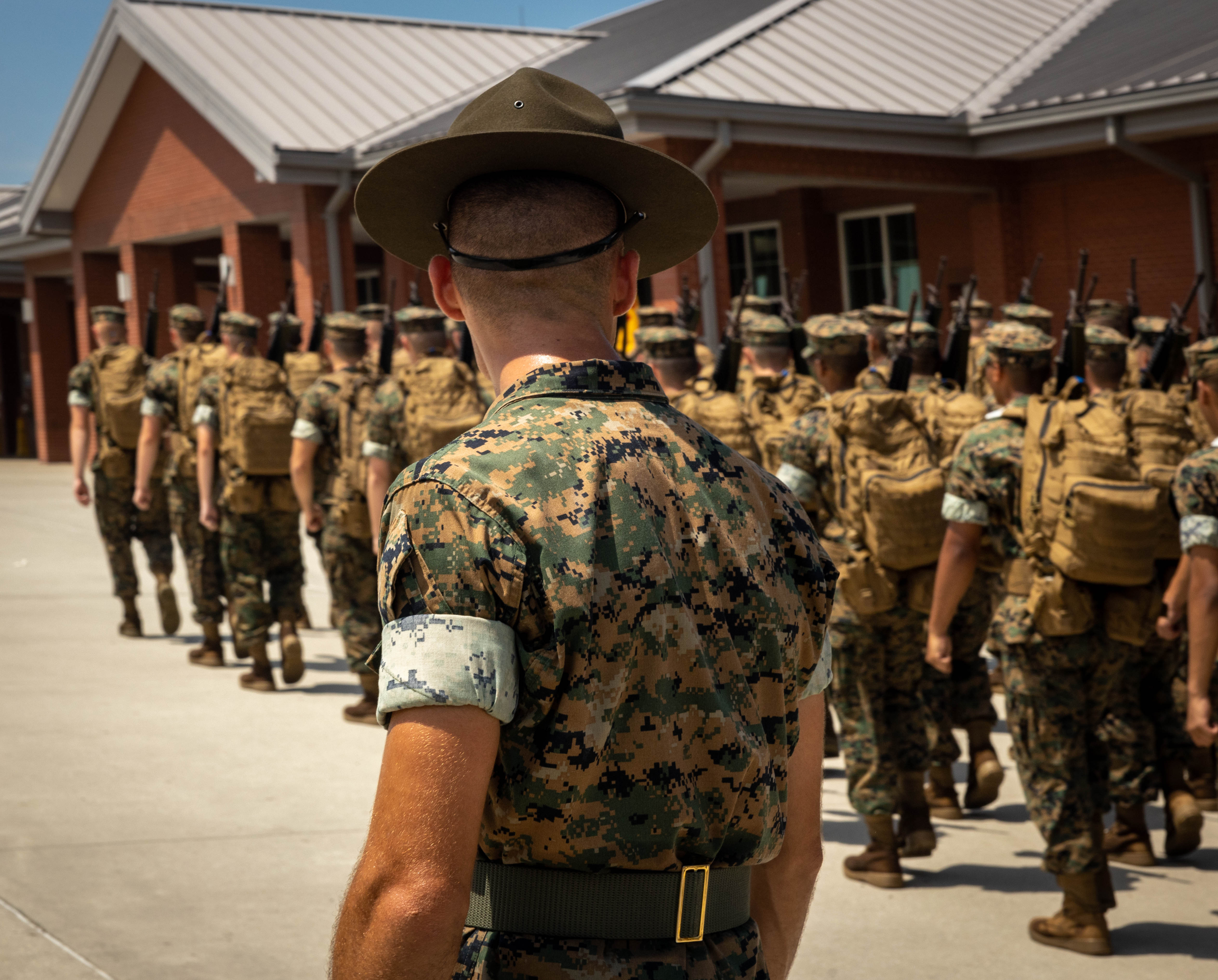
WASHINGTON, DC – When Marine Corps Commandant Gen. David Berger laid out his vision for the Marine Corps, it included a fundamental manpower shift.
Instead of the service’s generations-old train-and-replace model that relied on young Marines who signed on for a single four-year enlistment, the commandant of the Marine Corps shifted its priorities to emphasize retaining Marines. It has been nearly two years since Berger released Talent Management 2030, which laid out how the force would begin to recruit, train and retain Marines.
Keeping Marines is a new challenge for the service, as the personnel approach switched to retention. Numbers put out by the Marine Corps indicate that the approach is working. The service exceeded its retention goal by 700 Marines in Fiscal Year 2023, Michael Strobl, deputy commandant for manpower and reserve affairs, told reporters during the Modern Day Marine conference last week. The service already met 27 percent of its goal in FY 2024.
The Marines are looking to field an end strength of 172,147 with an average strength of 171,395 for FY 2023, according to the Navy’s budget documents. The next fiscal year is predicted to have small growth with an end strength of 172,300 and an average strength of 173,230.
The Marine Corps specifically gave commands a retention mission, Strobl said, and leaders are holding commands accountable to it.
There is a mindset shift that Marine Corps leaders needed to embrace with Talent Management 2030, and they are realizing the value of it, Maj. Gen. Roger Turner Jr. director of Operations Division, Plans, Policies and Operations, told reporters.
The former model of recruiting and replacing was not wrong for the Marine Corps, Berger told reporters in one of his last interviews before retiring. It was the right model at the time when the force needed a young, strong force to face combatants like those in Afghanistan. The landscape has changed, requiring a different one.

The two main reasons for the change are China as a close competitor and the speed by which technology is changing, Berger said. That means instead of a young force the Marines need a mature one where people can speedily make decisions that integrate cyber, space and technology.
At first, the force thought the shift in Marines would be maturing the force by aging it, said Lt. Gen. Kevin Iiams, commanding general of the Training and Education Command. But now it is about educating Marines so they are more cognitive.
In addition to Talent Management 2030, the personnel side of Berger’s Force Design 2030, the Marine Corps also released Training and Education 2030, which lays out how the Marines will prepare the force for the future.
This includes the use of live constructed virtual training to allow Marines to train in simulations together, even if they are not in the same area.
It also means understanding how the current generation of Marines learn and incorporating that into training. Iiams spoke about the use of video learning and the ability to ask more of Marines at Modern Day Marine.
Education is something Marines want, Berger said. When he joined, the service provided $1,000 a year in tuition assistance. That is not enough anymore, he said.
There are enlisted Marines who are going for doctorate degrees while in the force, Berger said.
“We have to satisfy their need, their want to get a higher education,” he said.
To keep Marines, the service looked at a number of challenges that prevented service members from signing another contract.
It comes down to knowing the Marine, Berger said. People become a Marine for their own reasons. Leaders need to take time to speak with each Marine to understand that reason and what they want over their time in the force.

“But as long as we understand why you came in in the first place, and you’re able to meet that along the way, we probably got a pretty good chance of keeping you,” Berger said.
One of the obstacles to keeping Marines is the number of permanent changes of station required by a life in the military. The Marine Corps is starting to take a new approach, looking at how they might be able to keep a Marine in the same place for longer rather than move them just for the sake of moving.
That does not mean Marines will spend a career in one place. Different training and positions require moves. But the Marine Corps is looking at how they can balance PCSs with stability for the Marine and their family.
Permanent changes of station have dropped since Fiscal Year 2020, according to data the Marines provided to USNI News. FY 2023 is estimated to have 25,988 PCSs, the lowest since FY 2016.
The Marine Corps found success with also giving some control back to Marines, such as through volunteering for positions, like recruiters. About 70 percent of recruiters volunteered, Maj. Gen. William Bowers, commanding general of the recruiting command, told reporters.

The “Recruit the Recruiter” program allows Marines to give their location choice and preference for their next position, which allows them some control over their next eight years, Bowers said. That’s supplemented by a bonus.
It’s also about making changes in the process like making it easier to reenlist, Strobl said.
Manpower will continue to be a challenge for Gen. Eric Smith, who takes over as acting commandant when Berger retires Monday. Smith, who was nominated for commandant, is one of the 250 flag and general officers whose confirmations have been held up by Sen. Tommy Tuberville (R-Ala.) over the Department of Defense’s non-covered reproductive care leave policy.
Smith is already focused on personnel issues, Berger said. As the presumptive next leader of the Marines, he’ll have to focus on a variety of topics like barracks concerns and pay.
“Those are all the basics and the quality, the level of expectations, if we don’t match that then the leave, right?” Berge said. “These are not complicated factors, but they’re basics.”
When it comes to personnel, it is about making sure that each Marine achieves what they came into the force to do, Berger said. The service needs to look at if it is meeting each of the challenges. If not, Marines will not stay.
People are important, Berger said. After all, that is what has kept him in the service all these years.
He never saw himself in what he called a flat career. The highs and even the lowest of lows shaped his career. Marines are a special breed, a group of people that are there for each other, no matter the time.
“Where I would have a personal challenge where I would be surrounded by these special people,” Berger said.





